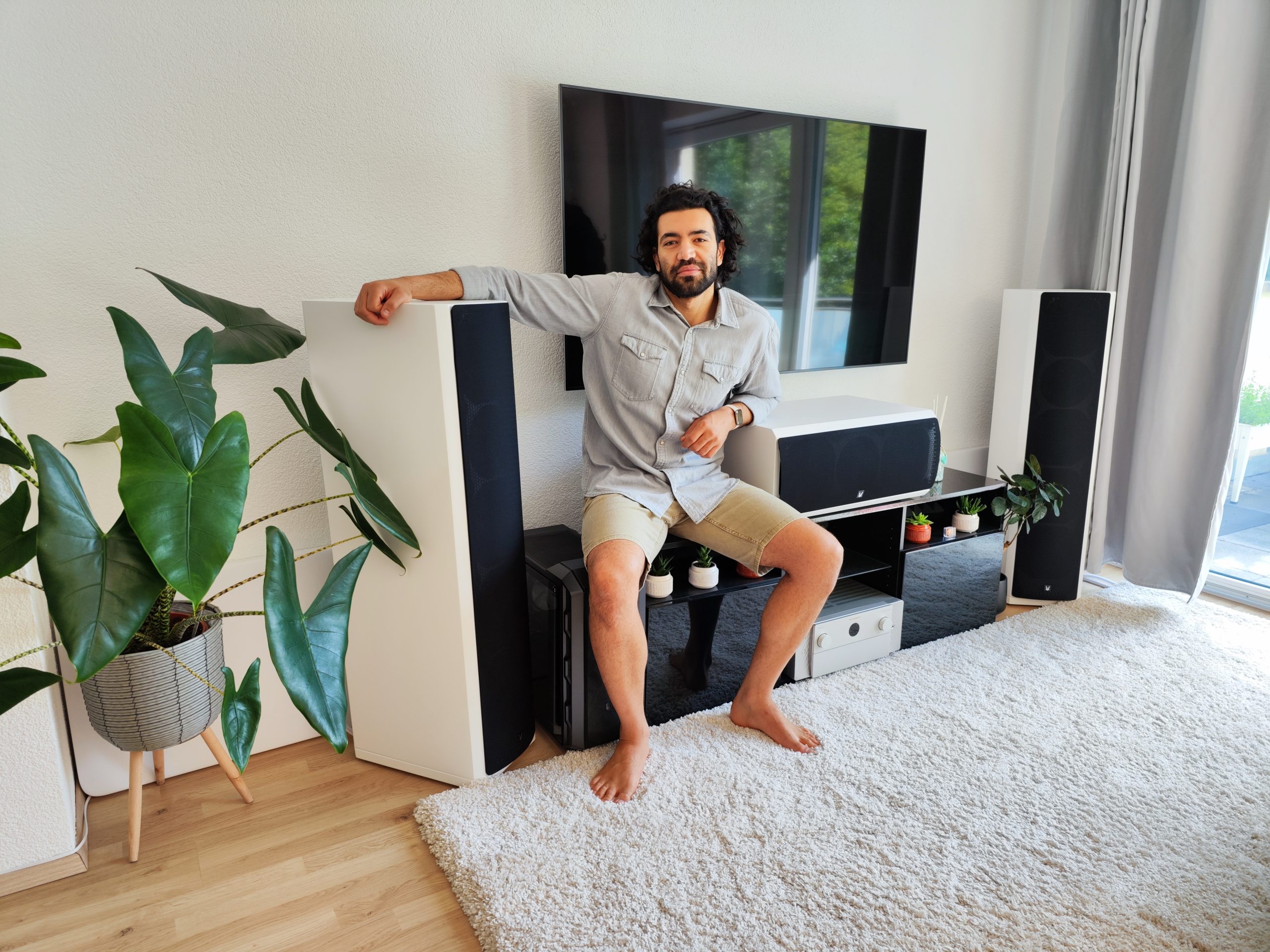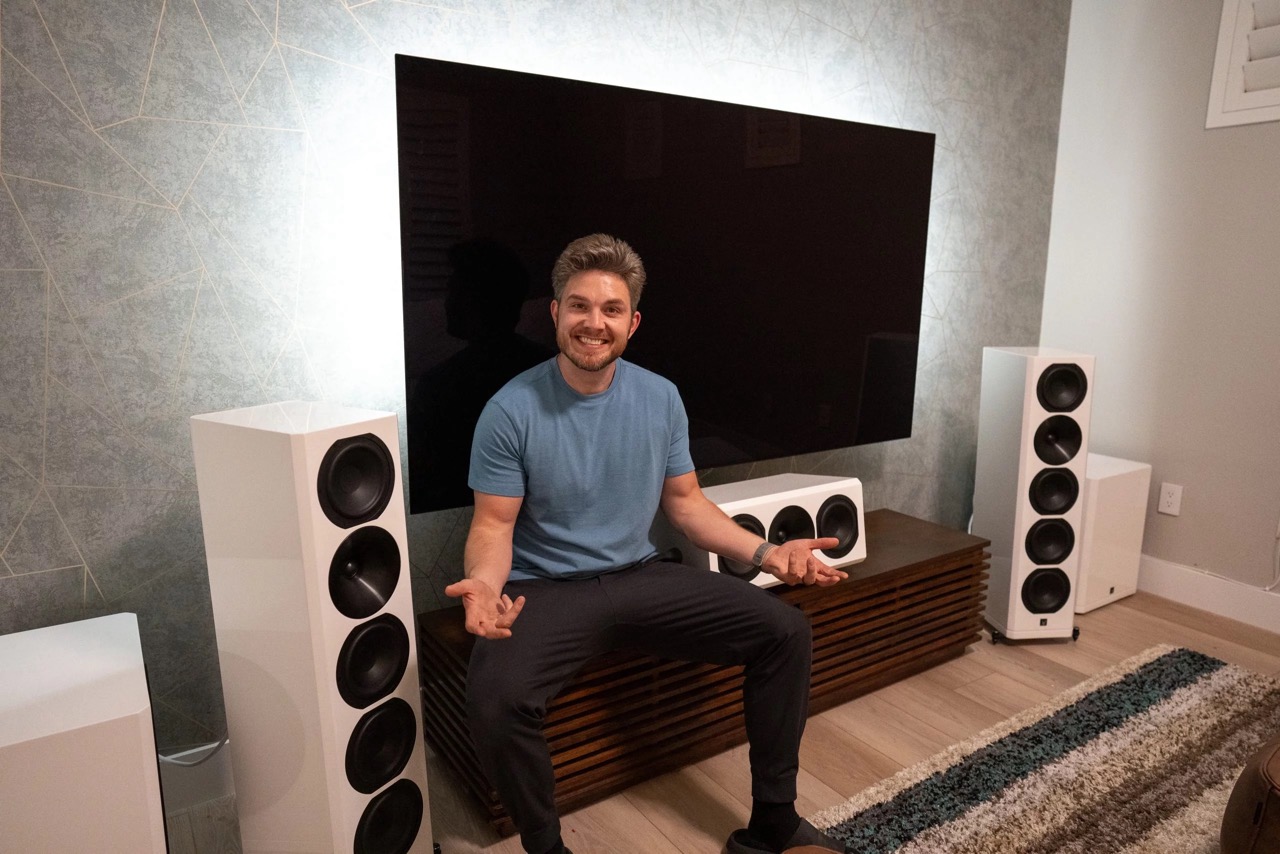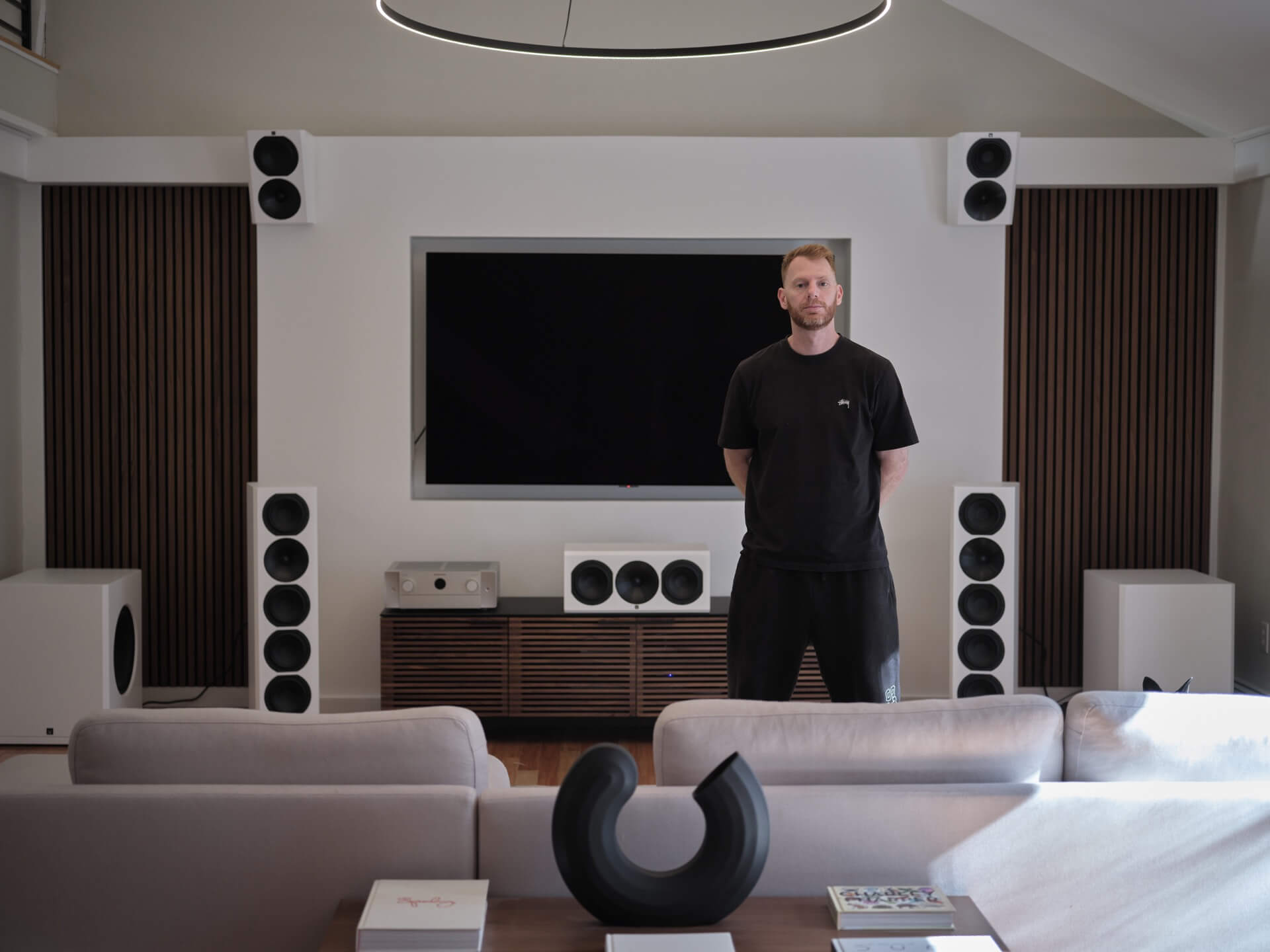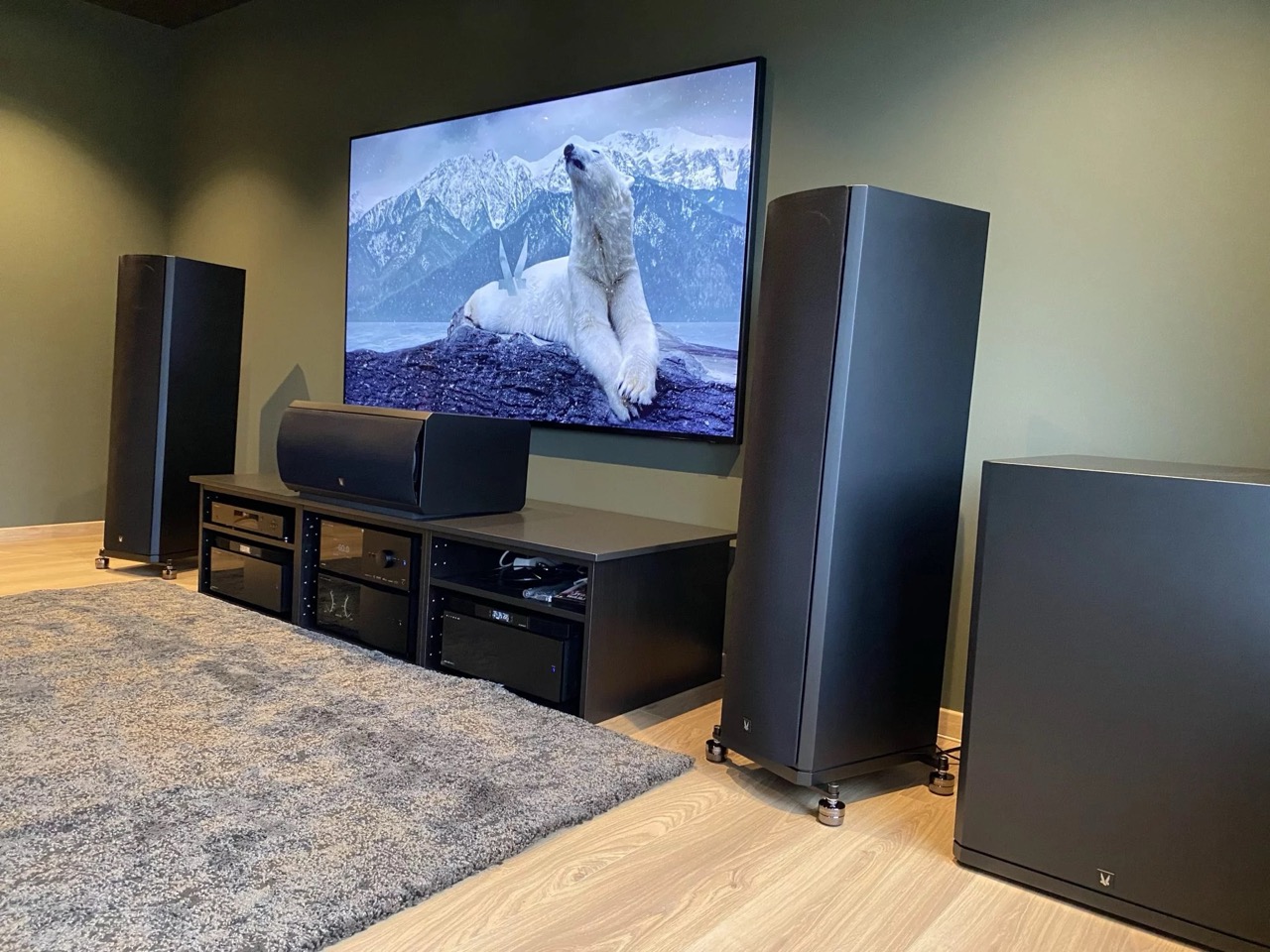Laying the Groundwork for Your Home Cinema
Article summary - TL;DR
- Plan your home cinema with a clear budget and timeline to avoid overspending and rushed decisions.
- Choose an ideal space that minimizes external noise and allows for proper seating and screen distance.
- Engaging professionals can save time and money, ensuring the project reflects your vision and meets all technical requirements.
- Incorporate modern audio and visual technologies to enhance the overall viewing experience and integrate smart home controls.
- Enhance your audio-visual setup with the 1723 Tower THX for premium sound quality in your home theater.
Building a home cinema is an exciting project that can provide years of entertainment and enjoyment. Before diving in, it’s essential to take the right steps in preparation to ensure that your home theater is not only comfortable but also delivers the best possible viewing and listening experience. This article will guide you through the preliminary phase of your home cinema construction, ensuring you lay a solid foundation for your home entertainment oasis.
Understanding the Scope of the Project
Before you start any construction, it’s important to understand the scope of your home cinema project. This means defining your budget, timeline, and the extent of renovations or construction required. Whether you’re transforming an existing room or building a new addition to house your cinema, it’s crucial to map out all the details beforehand.
Establishing a clear budget will help to manage your expenses and avoid overspending. Allocate funds for construction materials, insulation, drywall, audiovisual equipment, seating, décor, and any other features you desire. A realistic timeline will ensure that the process moves smoothly and prevents rushed decisions that could negatively impact the quality of your home cinema.
Research local building codes and regulations, which may influence construction methods and material choices. Getting the necessary permits in place before starting work will help avoid any legal complications that could stall your project.
Choosing the Right Space
Identifying the ideal location within your home is a crucial step in the pre-construction phase. The right space should be isolated from external noises and disturbances, and have ample room for seating, a large screen, and sound equipment. Consider the natural lighting in the space; minimal windows are ideal to control ambient light.
Look for a room that’s large enough to provide a comfortable distance between the screen and the seating area, but not so large that it hampers the acoustic quality. The shape of the room can also impact sound; traditional rectangle rooms tend to work best for achieving balanced acoustics.
Accessibility to electrical wiring and the ability to integrate HVAC systems without causing noise pollution are important considerations. You’ll want to ensure that your home theater has enough power outlets and can maintain a comfortable temperature without disrupting the cinematic experience.
Engaging Professionals
Even for the savvy DIYer, engaging professionals during the planning phase can save time and money in the long run. Contractors, architects, or a home theater specialist can provide valuable insights into the design and construction of your cinema room. They can identify potential problems and offer solutions that you might not have considered.
Professional advice is crucial when it comes to complex systems like soundproofing, acoustics, and HVAC integration. Their expertise can help to ensure that these systems don’t interfere with the aesthetics or the functionality of your home cinema.
When selecting a contractor, look for one with experience specifically in home theaters or media rooms. Check their references and previous projects to get a sense of their work quality and style. Clear communication with your hired professionals will ensure that they understand your vision for the space.
Technology Considerations
Technology is at the heart of any home cinema, and understanding current and upcoming trends will help future-proof your investment. This doesn’t mean you need the most expensive equipment, but you should plan for high-quality audio and visual components that enhance the viewing experience.
Considerations for visual technology include the size and type of screen, whether it’s a high-definition TV or a projection system, as well as the necessary distance for optimal viewing. For audio, the placement of speakers and subwoofers for a surround sound experience is essential.
Include provisions for smart home technology integration. Being able to control the lighting, temperature, and audiovisual equipment with a touch of a button or a voice command is not only convenient but also tremendously enhances the overall user experience in your home cinema.
Design and Acoustic Planning
Designing your home cinema to have a pleasing aesthetic while also ensuring premium sound quality is a balancing act. The materials used within the cinema, from wall coverings to floors and ceilings, will affect the room’s acoustics, which in turn affects the sound quality of your films and music.
Acoustic planning involves selecting materials that absorb and reflect sound appropriately. For instance, hard surfaces reflect sound and can create echoes, whereas soft materials can help absorb sound. Using a combination of both, you can prevent sound from bouncing around too much or being too deadened.
Professional acoustic consultants can help design the layout and recommend specific materials and placement for acoustic tiles, panels, carpets, and other sound control measures. Strategic placement of these materials will help control reverberation and keep sound from escaping, ensuring a rich and immersive listening environment.
Frequently asked questions
What are the first steps to build a home cinema?
Start by understanding the project's scope, defining your budget and timeline, and identifying the ideal location in your home for the cinema.
How do I choose the right space for my home theater?
Look for a room isolated from noise, large enough for seating and a screen, with minimal windows to control lighting and a shape conducive for balanced acoustics.
Should I hire professionals for my home cinema project?
Yes, engaging professionals such as contractors or home theater specialists can save time and provide valuable insights for design and technical aspects like soundproofing and acoustics.
What technology considerations should I keep in mind for a home cinema?
Focus on high-quality audio and visual equipment, screen size, placement for surround sound, and smart home technology integration for an enhanced user experience.
How does the design affect sound quality in a home cinema?
Design choices, including materials for walls, floors, and ceilings, significantly impact acoustics. Combining absorbing and reflecting materials can control sound and improve the listening experience.
What acoustic planning should I undertake for my home theater?
Plan for strategic placement of acoustic materials such as tiles and panels to manage sound reflections and reverberation, ensuring a rich listening environment.
How can I avoid overspending on my home cinema project?
Establish a clear budget that includes construction materials, equipment, and décor to manage expenses and prevent overspending.
What role do building codes play in home cinema construction?
Research local building codes and regulations before starting, as they can influence construction methods and material choices, helping you avoid legal complications.
What are common mistakes to avoid when building a home cinema?
Avoid rushing decisions due to poor planning, neglecting soundproofing and acoustics, and failing to account for technology needs and layout optimization.








